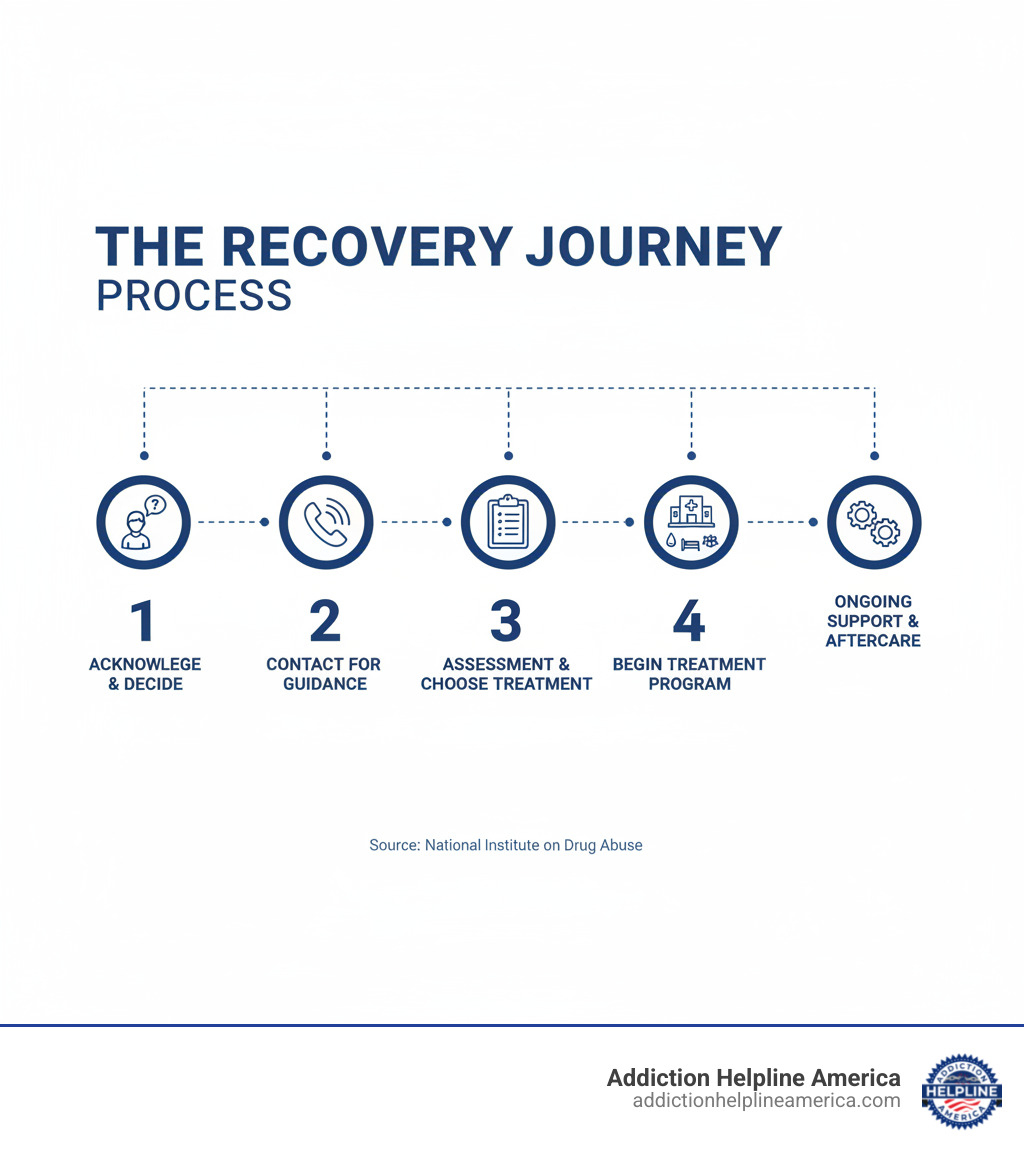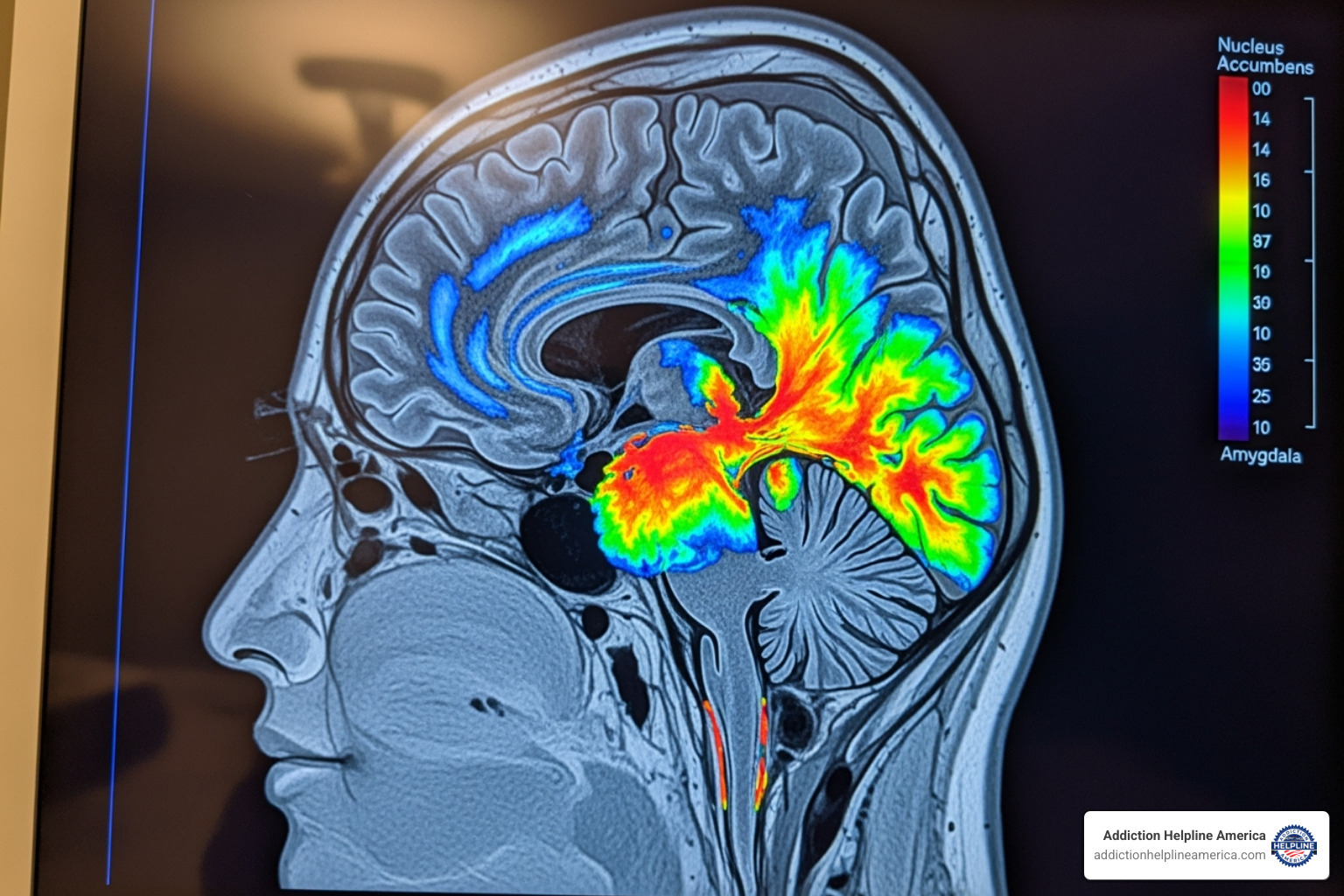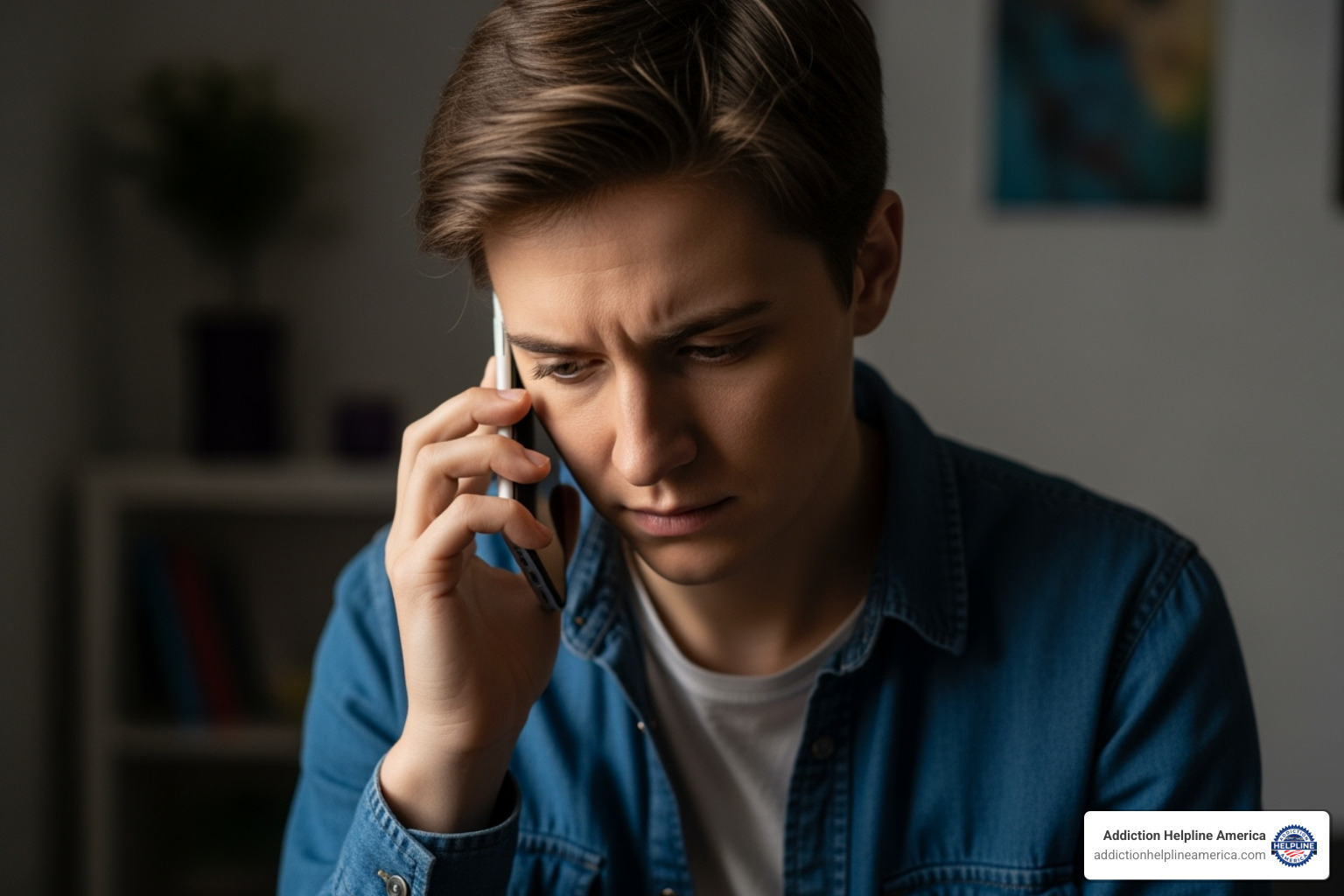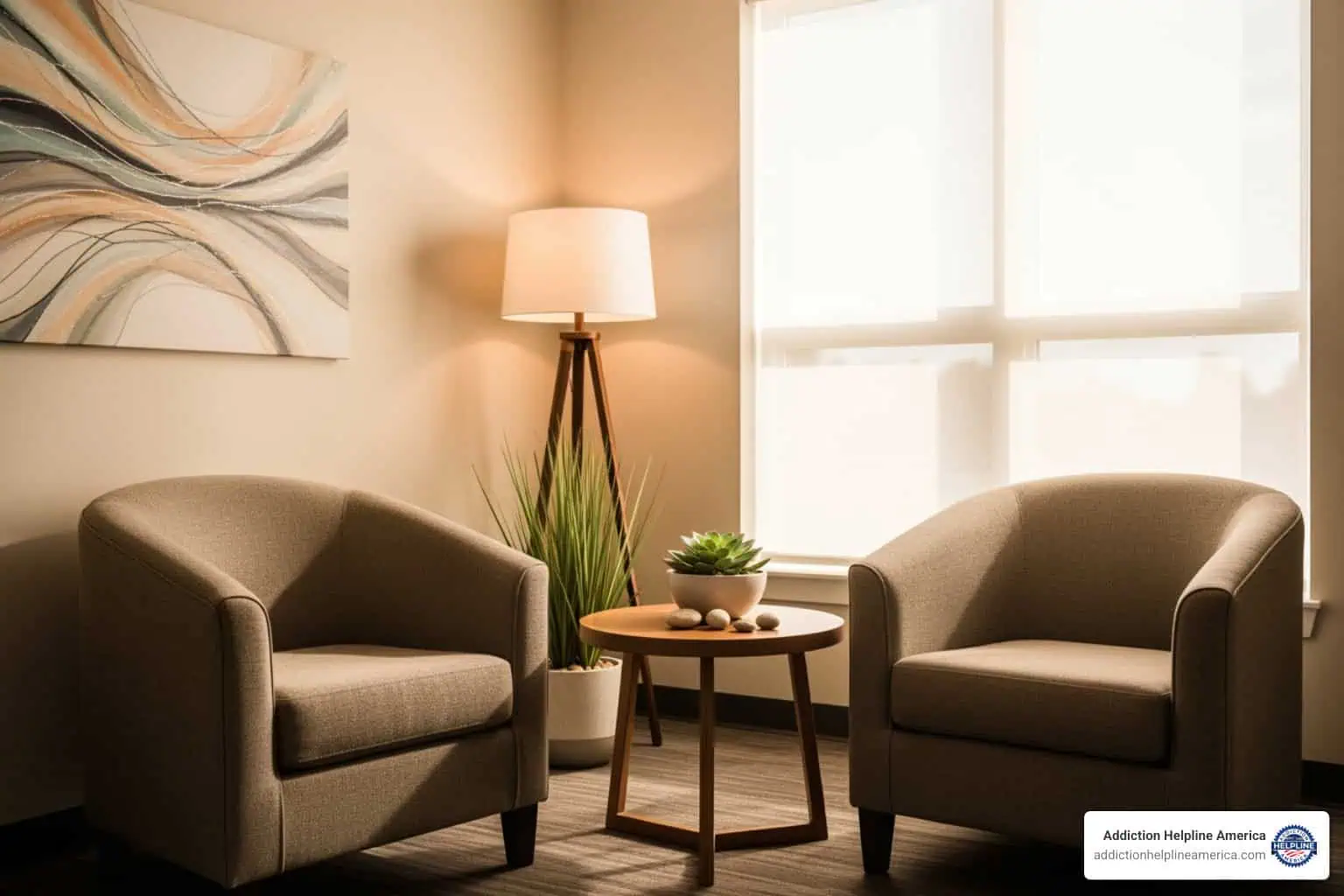
Why Addiction Recovery Assistance is Your Lifeline to Healing
Addiction recovery assistance encompasses the comprehensive support, resources, and professional services designed to help individuals overcome substance use disorders and rebuild their lives. Whether you’re struggling with addiction yourself or watching a loved one battle this disease, understanding your options can be the difference between continued suffering and lasting recovery.
Key Types of Addiction Recovery Assistance:
- 24/7 Helplines – Confidential support and treatment referrals
- Treatment Programs – Detox, inpatient, outpatient, and intensive programs
- Financial Assistance – State-funded programs, insurance coverage, sliding fee scales
- Recovery Support Services – Counseling, support groups, sober living homes
- Crisis Intervention – Immediate help during emergencies or overdoses
The statistics paint a sobering picture: 46.3 million people aged 12 or older had a substance use disorder in 2023, yet help is more accessible than ever before. Recovery is not only possible—it’s happening every day across America.
At Addiction Helpline America, we have dedicated our mission to providing compassionate, confidential support to individuals and families affected by substance abuse. Our experienced team of addiction specialists and recovery advocates offers 24/7 guidance to help you steer the path to healing, regardless of where you are in your journey.
Understanding the Landscape of Addiction Recovery Assistance
When you’re searching for addiction recovery assistance, it helps to understand what you’re really dealing with. Addiction isn’t a character flaw or a lack of willpower—it’s a chronic brain disease that changes how your mind works. Just like diabetes affects your pancreas, addiction fundamentally alters the brain’s reward and decision-making circuits.
This medical understanding means that professional treatment and support are necessary for recovery. It’s a condition that requires compassionate care, not judgment.
It’s also important to know that about half of all people with substance use disorders also struggle with a mental illness. These are called co-occurring disorders. Whether drinking began as a way to quiet anxiety or depression led to prescription drug misuse, both conditions need to be treated at the same time for recovery to be successful.
Integrated treatment addresses both addiction and any mental health issues together, leading to much better outcomes because it tackles the root causes. Investing in addiction recovery assistance also has a broad impact: every dollar spent on substance abuse treatment saves society an estimated $4 in healthcare costs and $7 in law enforcement expenses.
The Different Types of Treatment Services
Finding the right level of care is about matching the program to your needs. You can move between levels as your recovery progresses.
- Medically monitored detox is often the first step for heavy substance use. In a medical setting, doctors manage withdrawal symptoms to keep you safe and comfortable.
- Residential treatment involves living at a treatment center for an extended period, providing a structured environment away from triggers to focus entirely on recovery.
- Partial hospitalization programs (PHP) offer hospital-level care during the day (e.g., 6-8 hours) while you return home at night.
- Intensive outpatient programs (IOP) are a step down, with treatment a few days a week for several hours, allowing you to balance recovery with work or family life.
- Standard outpatient treatment is the most flexible option, often involving weekly therapy and support groups, ideal for those with strong home support.
- Sober living homes bridge the gap between treatment and independent living, providing a supportive, substance-free environment with peers in recovery.
Supportive Approaches in Addiction Recovery
Effective addiction recovery assistance uses proven methods to help you develop new coping skills and build a life you don’t want to escape from.
- Medication-Assisted Treatment (MAT) combines FDA-approved medications with counseling for opioid and alcohol use disorders, stabilizing brain chemistry while you work on behavioral changes.
- Cognitive Behavioral Therapy (CBT) helps you identify and change the thought patterns and behaviors that lead to substance use.
- Individual, group, and family counseling provide safe spaces to heal underlying issues, connect with peers who understand, and repair relationships damaged by addiction.
- Mindfulness practices like meditation and yoga are proven tools for managing stress and staying present.
- Support groups like Alcoholics Anonymous and Narcotics Anonymous offer long-term peer support, a cornerstone of recovery for millions.
Modern addiction treatment is personalized. At Addiction Helpline America, we help you find providers who will create a treatment plan that fits your unique life, needs, and goals.
How to Pay for Substance Abuse Treatment
Let’s be honest – money worries can feel like a wall between you and getting help. Many people put off seeking addiction recovery assistance because they’re scared about the cost. But here’s something important: you have more options than you might think, and cost should never keep you from getting the care you need.
The myth that addiction treatment is only for wealthy people simply isn’t true. Yes, some private facilities can be expensive, but there are countless state-funded programs, non-profit organizations, and insurance options that provide excellent care at little to no cost.
Think of it this way – every day you wait because of financial concerns, the problem often gets worse and more expensive to treat later. The good news? We’re here to help you figure out the money side of things without any judgment or pressure.
At Addiction Helpline America, we’ve helped thousands of people find treatment that fits their budget. Our team knows the ins and outs of funding options, and we’ll work with you to explore every possibility. Whether you have insurance, qualify for state programs, or need help finding sliding-scale fees, we’ll guide you through it step by step.
Finding State-Funded Addiction Recovery Assistance
Every state in America offers addiction recovery assistance programs funded by taxpayers – including you. These programs exist because lawmakers understand that helping people recover from addiction benefits everyone in the community.
Most of this funding comes from federal block grants that Congress requires to be used for drug, alcohol, and mental health services. In fact, nearly one-third of all addiction treatment costs in America are covered by state and local governments. That’s billions of dollars set aside specifically to help people like you get better.
To qualify for state-funded programs, you’ll typically need to show that you live in the state where you’re seeking help and that your income falls within certain guidelines. Most states use the federal poverty guidelines as their measuring stick. For example, some states help people earning up to 133% of the federal poverty level.
You’ll also need to demonstrate that you can’t afford other treatment options – maybe you don’t have insurance, or your insurance benefits are used up, or you simply don’t have the money for private treatment. Most programs also require proof of U.S. citizenship or legal residency.
Finding your state’s programs is easier than you might think. Every state has a substance abuse agency that can tell you exactly what’s available. Take Tennessee, for example – their Department of Mental Health and Substance Abuse Services offers everything from outpatient counseling to residential treatment to medically monitored detox. They even help people with both addiction and mental health issues at the same time.
The best part? These aren’t “lesser” programs. State-funded treatment centers often provide the same evidence-based therapies and medical care you’d find at expensive private facilities.
Using Insurance and Other Benefits
If you have insurance – or think you might qualify for government insurance – you’re already ahead of the game. Let’s break down your options in plain English.
Medicaid and Medicare can be lifesavers when it comes to paying for addiction recovery assistance. If you’re eligible for Medicare, Parts A, B, and D cover most types of addiction treatment, including inpatient care, outpatient therapy, and medications (except methadone). Medicaid coverage varies by state, but many states expanded their programs under the Affordable Care Act, which means more people qualify and get better coverage for addiction treatment.
Veterans deserve special mention here. If you served our country, the VA provides comprehensive addiction treatment at no cost. This includes screening, counseling, intensive outpatient programs, residential care, detox, and even couples counseling. You’ve earned these benefits.
The Affordable Care Act changed everything for people seeking addiction treatment. Before the ACA, insurance companies could deny coverage if you had a history of substance use. Now, that’s illegal. The law also requires that substance use disorder services be included as an essential health benefit in all ACA plans.
This means your insurance must cover psychotherapy, counseling, and inpatient mental health care for addiction. If your income is low, you might also qualify for government help paying your premiums through tax credits and cost-sharing subsidies.
Private insurance has also improved dramatically thanks to parity laws. These laws require insurance companies to treat mental health and addiction benefits the same way they treat medical benefits. So if your plan covers surgery, it has to provide similar coverage for addiction treatment.
Here’s where we come in: figuring out your insurance benefits can feel like reading a foreign language. Our team at Addiction Helpline America specializes in helping you understand your coverage, verifying your benefits, and connecting you with treatment centers that accept your insurance. We’ll do the detective work so you can focus on getting better.
How to Find the Right Treatment Provider
Making the decision to seek addiction recovery assistance takes incredible strength. Once you’ve taken that brave first step, the next hurdle is finding the right treatment provider. This can feel overwhelming, but you don’t have to steer this alone.
Your privacy is our priority. Confidentiality and anonymity are protected throughout this journey. Any conversation you have with us or with the treatment providers we recommend is handled with complete discretion and without judgment.
When evaluating potential facilities, look for centers that offer the specific types of services you need, whether that’s detox, residential care, or outpatient support. Consider their treatment approaches, staff qualifications, and whether they can address co-occurring mental health conditions. The environment matters, too. At Addiction Helpline America, we’ve built relationships with trusted providers across our extensive network, so we can match you with facilities that align with your preferences and medical needs.
Using Addiction Helpline America’s Free Locator Tool
Our free locator tool removes the guesswork from finding quality addiction recovery assistance. It’s confidential, user-friendly, and draws from a comprehensive database of treatment facilities.
You can start your search by location, then use our filtering system to narrow your options based on what matters most. You can filter by:
- Type of Care: Find facilities specializing in co-occurring disorders, trauma-informed care, or pain management.
- Service Setting: Search for outpatient, residential, inpatient, or even telemedicine options.
- Payment Options: Filter by Medicaid, Medicare, private insurance, sliding fee scales, or other payment assistance.
- Special Programs: Locate programs designed for veterans, young adults, seniors, pregnant women, or LGBTQ+ individuals.
Once you’ve identified potential centers, we encourage you to call them directly. Ask about program duration, staff qualifications, aftercare support, and success rates. Quality facilities will be happy to share this information.
How Helplines Provide Immediate Addiction Recovery Assistance
Sometimes you need help right now. Helplines are a true lifeline, offering immediate addiction recovery assistance when you need it most. When you call, you’ll connect with a trained advisor who offers compassionate support, reliable information, and guidance toward your next steps.
- The 988 Suicide & Crisis Lifeline provides free, confidential support for anyone in distress. You can call or text 988 anytime.
At Addiction Helpline America, our confidential helpline operates around the clock. We provide personalized guidance that takes your specific situation into account—your insurance, location, and treatment preferences. We recognize that addiction affects entire families, and we’re here to provide resources and support for everyone on the recovery journey.
Frequently Asked Questions about Addiction Recovery Assistance
When you’re considering taking that brave first step toward recovery, it’s natural to have questions. We hear these concerns every day, and we believe that honest, straightforward answers help you feel more confident about seeking addiction recovery assistance.
Is my conversation with a helpline confidential?
Absolutely. When you call an addiction recovery assistance helpline, your conversation is completely anonymous and confidential. This is a core principle backed by federal privacy laws like HIPAA. Our trained advisors are bound by strict privacy guidelines. There is never any pressure or obligation to enter treatment after calling—it is a safe space to get honest guidance without judgment.
What is the difference between inpatient (residential) and outpatient treatment?
This is a common question, and the main difference comes down to the intensity of care and where you sleep at night. Neither option is inherently better; it’s about finding the right fit for your needs.
-
Inpatient treatment means you live at the facility 24/7, receiving round-the-clock medical and emotional support in a structured environment away from outside triggers. It’s best for those with severe addictions or who need a safe space to focus entirely on recovery.
-
Outpatient treatment allows you to live at home while attending scheduled therapy sessions. It’s a flexible option that works well for those with strong support systems or who need to maintain work and family responsibilities.
| Inpatient Treatment | Outpatient Treatment |
|---|---|
| Living Situation: Stay at the treatment facility 24/7 | Living Situation: Live at home, attend scheduled sessions |
| Intensity: Round-the-clock medical and emotional support | Intensity: Flexible scheduling with varying levels of care |
| Best For: Severe addiction, unsafe home environment, medical complications | Best For: Strong support system at home, work/family obligations, step-down from inpatient care |
Many people use both, starting with inpatient care and transitioning to outpatient support as they progress in their recovery.
What if I have a co-occurring mental health disorder?
You’re not alone. About half of people with substance use disorders also experience a mental illness like depression, anxiety, or PTSD. This is known as a dual diagnosis or co-occurring disorder.
The most effective addiction recovery assistance uses an integrated approach that addresses both your substance use and mental health simultaneously. When one condition goes untreated, it often fuels the other. When looking for treatment, find a facility that specializes in dual diagnosis care.
Ask potential providers if they treat co-occurring disorders and if they have mental health professionals on staff. You deserve comprehensive care that addresses all aspects of your well-being. With the right integrated treatment, recovery from both conditions is absolutely possible.
How to Pay for Substance Abuse Treatment
The cost of addiction treatment shouldn’t stand between you and recovery. Addiction recovery assistance is more accessible than many people realize, and there are multiple ways to make care affordable.
Think of treatment as an investment in your future—healthier relationships, improved well-being, and better stability often reduce long-term costs far beyond the price of care.
At Addiction Helpline America, we help you compare options quickly and confidentially so you can focus on getting well.
Finding State-Funded Addiction Recovery Assistance
Every state supports publicly funded programs backed by federal and state dollars. Many offer evidence-based care at little to no cost for eligible residents.
Common requirements include:
- Proof of residence in the state
- Income within set guidelines (based on federal poverty levels)
- Demonstration of financial need
- Proof of U.S. citizenship or legal residency
Your state’s substance abuse agency can explain current offerings and help with intake. If paperwork feels daunting, we can guide you through it.
Using Insurance and Other Benefits
Coverage has expanded significantly:
- Medicaid and Medicare often cover inpatient and outpatient treatment, medications, and structured programs (coverage varies by state and plan).
- VA benefits provide comprehensive addiction treatment for eligible veterans.
- The Affordable Care Act classifies substance use treatment as an essential health benefit and protects people with pre-existing conditions.
- Private insurance must follow parity laws, offering mental health and substance use benefits on par with medical/surgical coverage.
We can verify your benefits, explain out-of-pocket costs, and connect you with treatment centers that accept your plan.
How to Find the Right Treatment Provider
Taking that first step toward getting help is courageous. If you’re seeking addiction recovery assistance, you don’t have to figure it out alone—your information remains confidential and your preferences matter.
When comparing facilities, look for services that match your needs (detox, residential, outpatient), clinicians experienced with co-occurring disorders, and an approach that feels right to you.
At Addiction Helpline America, we’ve built a trusted national network and connect you with providers that fit your situation, goals, and coverage.
Using Addiction Helpline America’s Free Locator Tool
Our confidential locator makes it simple to find programs near you and filter by what matters most:
- Care types (including co-occurring and trauma-informed care)
- Service setting (outpatient, residential, inpatient, telemedicine)
- Payment options (Medicaid, Medicare, private insurance, sliding fee scales)
- Special programs (veterans, young adults, seniors, pregnant/postpartum, LGBTQ+)
Call short-listed centers to confirm availability, program details, staff credentials, and aftercare. We can help you prepare questions and make those calls.
How Helplines Provide Immediate Addiction Recovery Assistance
If you’re in immediate crisis, the 988 Suicide & Crisis Lifeline is available 24/7 by call or text.
For personalized treatment guidance, the team at Addiction Helpline America is available around the clock to help you understand options, verify benefits, and get connected quickly.
Frequently Asked Questions about Addiction Recovery Assistance
Is my conversation with a helpline confidential?
Yes. Calls are confidential and protected by privacy laws like HIPAA. There’s no obligation to begin treatment—use the call to ask questions and learn about options.
What is the difference between inpatient (residential) and outpatient treatment?
- Inpatient: You live at the facility with 24/7 support—best for severe symptoms or unsafe environments.
- Outpatient: You live at home and attend scheduled therapy—works well with strong support systems or as step-down care.
Many people start inpatient and transition to outpatient as they progress.
What if I have a co-occurring mental health disorder?
Look for programs that provide integrated care for substance use and mental health. Ask about on-staff mental health professionals and experience with dual diagnosis. Integrated treatment improves outcomes and supports long-term recovery.
Our helpline is 100%
free & confidential
If you or someone you care about is struggling with drug or alcohol addiction, we can help you explore your recovery options. Don’t face this challenge alone—seek support from us.
Programs
Resources
Will my insurance
cover addiction
treatment?
We're ready to help
Find the best
drug or alcohol treatment
center
Are you or a loved one struggling with addiction? Call today to speak to a treatment expert.







